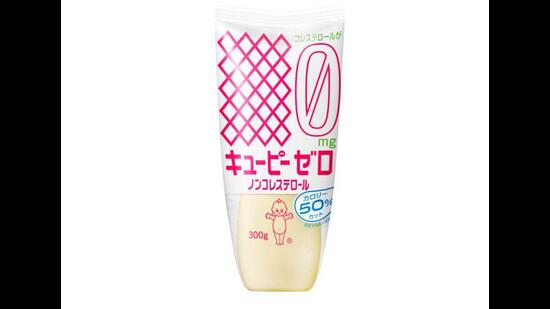
Rude Food by Vir Sanghvi: This may take time to process
7 months ago | 71 Views
With each passing day, news about the dangers posed by processed foods gets worse. About five years ago, when the campaign against Ultra Processed Foods (UPFs) first attracted attention, many of us were sceptical about claims that a packet of instant noodles or a bowl of breakfast cereal may end up damaging our health. But as more and more studies have been released, it is clear that some packaged foods may be much unhealthier than we realised.
The most recent study, presented last fortnight at the Alzheimer’s Association International Conference, posits a strong connection between processed foods and dementia. The study tracked more than 130,000 adults in the US for up to 43 years, and its conclusions are alarming. The study found that eating packaged meats processed in a factory around twice a week meant that you had a 14 % greater risk of developing dementia, compared to those who restricted their consumption to three servings a month.

This is in line with previous studies. A study tracking 72,000 older adults in the UK found that a diet containing 10% more UPFs gave you a 25% higher risk of dementia. Another study following 30,000 Americans linked greater processed food intake to an 8% higher risk of a stroke and a 10% higher risk of cognitive impairment.
Various experts have compared the stage we are currently at in the UPF debate to where we were in the 1970s on smoking. That was when evidence kept mounting that smoking was bad for you. And then too, powerful groups opposed the regulation of cigarettes on behalf of the multi-billion-dollar tobacco industry. Eventually, the evidence became overwhelming and health warnings and restrictions on smoking had to be introduced.
I reckon that globally, we will get to the strict regulation stage with UPFs in the next two or three years. India will follow this trend as it did with cigarettes. Already, Dr Arun Gupta, a passionate campaigner against UPFs, has effectively mobilised public opinion on the subject, the government’s FSSAI has tightened its scrutiny of packaged foods, and more legislation seems inevitable.

If there are such dangers, then what should you, as a consumer, avoid eating?
It is not easy to be categorical. The definition of UPFs comes from Nova, a system of food classification originally popularised in Brazil, which the processed food industry has always claimed is confusing and contradictory.
There are more anecdotal definitions. The New York Times says that anti-UPF campaigners are against “products made with ingredients that you wouldn’t find in a home kitchen, like soy protein isolate, high fructose corn syrup, modified starches, flavourings or colour additives”.
This makes a certain amount of sense, except that almost every ready-to-eat packaged food product you will find in a grocery store will contain ingredients you don’t recognise from your kitchen. For instance, the preservative sodium benzoate, which is found in many packaged foods, is generally recognised as safe by most authorities, including the Food and Drug Administration in the US. It is rapidly cleared from the body and there is no evidence that it does any damage to our health.

So, should you avoid it only because it is not a staple of your home kitchen? Probably not: A Luddite approach to the subject can be foolish and counter productive. One reason we have access to more kinds of food than our grandparents did is because science has shown us how to safely preserve food. On the other hand, if a product contains a long list of unfamiliar ingredients on its packaging, many of them with chemical names that you have never heard of, then it is wise to proceed cautiously.
It is much easier to look for the trio of HFSS or High Fat/Sugar/Salt products. This is not restricted to packaged foods. Even in home cooking, fat, salt and sugar are essential and add flavour. The problem is that in UPFs, the quantities can be massive. Any product containing more than 10% of total sugars, 10% of total fats and more than one milligram of sodium per kilo/cal is probably not very good for you in large quantities.
Here’s how I would ideally like to regulate my consumption of processed foods. I don’t always manage to follow these rules, but I do try!

A good rule of thumb is to think carefully before buying any ready-to-eat product that has been made in a factory.
I try not to buy industrial bread, frozen pizzas, breakfast cereal, instant noodles, packaged snacks, sausages or salami from a large meat-processing company, mass-produced cakes or pastries and factory-made ice-cream.
But it’s not as easy as it sounds. For a start, we are all human and absolute measures will always fail. In my own case, I continue to buy handmade crisps (like Kettle Chips) because all the guidance says they are not UPFs (unlike normal chips). But yes, it is hard to be sure. Besides, I ignore all my own recommendations and still eat chocolate digestives or Bourbon biscuits, though I am now careful to restrict the quantities.
So, my policy is: don’t stop. Just reduce or minimise.
We need also to come to terms with the Indian reality. While we may impose standards on the food processing industry, what about the bakery or the halwai next door? How do we know they are not using harmful colours, flavourings or preservatives? The short answer is: We don’t know. And many do use ingredients that the organised sector would have to list on its packaging. The neighbourhood guys don’t have to bother.
And so, while I love the Western idea of turning away from Big Food and relying on small local operations, it’s not an idea that works as well in India. All we can do is try and be careful.
I do have one rule which may be worth adopting. When the quantities are tiny — with condiments for instance — I don’t worry too much. If we were to apply today’s standards then many of our traditional pickles would be found to be too salty or too oily. Consuming them doesn’t do us too much harm because they form a tiny part of our diets. So I don’t necessarily stop myself from buying other condiments say, Kewpie’s mayonnaise or Veeba’s Bhut Jolokia sauce. (It helps that I trust the companies that make these products.)

Can the government stop the consumption of UPFs? And should it?
Well, by nature, I am opposed to most bans. I think the way forward is to follow the direction we have taken on cigarette smoking: Health warnings on packaging and strict restrictions on advertising.
But there is one area where we should be uncompromising. The real danger from UPFs lies in what they do to the health of our children. We are continually lied to by advertisers when it comes to products aimed at kids. Many so-called health products are actually unhealthy. Over-sweet breakfast cereals are a global menace.
I believe that all such products should face strict advertising restrictions similar to those applied to cigarettes. We should be able to prosecute companies that tell us that their worthless sugary health drinks and milk additives are good for the health of our children.
All doctors are agreed that many breakfast cereals are the worst offenders in the UPF category. They must face strict regulation and there is a case for restricting their ability to advertise. Certainly we should penalise greedy sports and movie stars who advertise unhealthy products aimed at children.
As for adults, I am inclined to agree with Dr Gupta. We should not restrict the freedom of adults. After all, we let them buy cigarettes, which cause cancer, so there is a precedent for letting adults retain the right to damage their own health.
Dr Gupta says there should be “warning labels indicating sugar, salt and fat content; and restriction in advertisements of food which are high in content of sugar, salt and fat. Just use WHO standards to define what is regarded as too high”.
I would put the warnings on the front of the packaging, where they can be seen, not hidden away at the back. It may sound excessive now, but trust me, in a few years, it will become a global practice. The medical evidence against UPFs mounts with each passing day.
Governments don’t have to protect adults but they should keep them well informed. After that, it is up to us to decide what we want to do to our bodies.
Read Also: This morning, have a protein-rich breakfast for these benefits
#




















